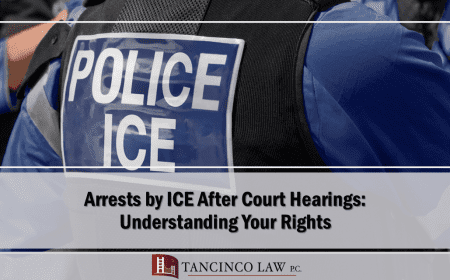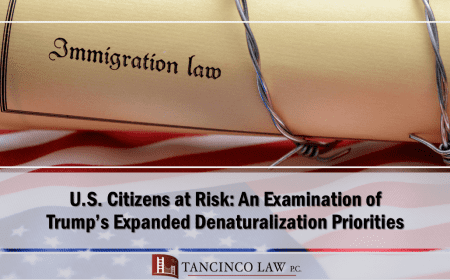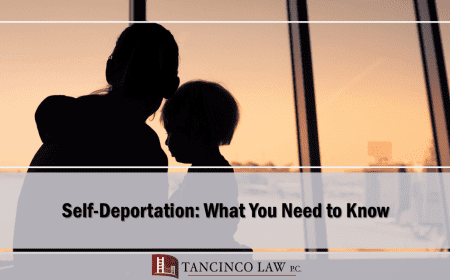Josephine is in senior high school at a prestigious school in Northern California. . Josephine had always excelled in her academics Aside from being smart, she also is popular because she is very attractive .She was born in the Philippines but her parents brought her to the United States when she was just seven years old
When Josephine turned 16 years old, she did not apply for a driver?s license because her parents told her to wait until she turned 18 years old. Now that she turned 18 years old and is a senior high school student, she still could not get her driver?s license as she was informed by her mother that she had no legal documents to support her application for a driver?s license. Josephine is one of the few, among her peers, who do not drive a car.
A few weeks back, representatives from different colleges went to her school to make presentations and to distribute applications forms. Josephine was not able to accomplish most applications because she does not have a social security number and the questions always asks if she is a US citizen or a permanent resident. Since she is undocumented, she has no legal immigration status neither will she be able to get a social security number.
Josephine is now confused and feels depressed. She feels so isolated and helpless. Her parents have no effective way to legalize their stay and in fact are now in deportation/removal proceedings. What are Josephine?s legal options?
Inadmissible at Entry
There are an estimated 12 million undocumented foreign nationals in the US. Most of these undocumented entered the US with a valid visa and then later allowed their visas to expire until they become ?tago ng tago? or ?TNT?s. Some entered with fraudulent documents or even fake identifications and are now facing adverse immigration consequences for their actions. Since immigration policy has been very restrictive, most of those who entered fraudulently or engaged in misrepresentation are having difficulty obtaining waivers resulting in them being deported or denied applications for immigrant visas.
For those who entered the US with their children, the inability of the parents to legalize their stay while their children were growing up has resulted in serious problems. Even without legal immigration status, children are generally able to enroll for elementary and secondary education. However, they will have a hard time enrolling in College because these schools now require proof of immigration status. These students are also not eligible for federal financial aid. Since the cost of tuition for college is expensive, many undocumented students forego the opportunity of going for higher education.
Student Visa
The legal way of sending one?s children to school to the US is to obtain a student visa. Children of non citizens or non immigrants may obtain the F1 student visa from the US consular office at the US embassy.
Parents who failed to legalize in the US, should understand that while they have not found it difficult to enroll their children in elementary and secondary education, applying for college education is different. It will always be advisable to go to the proper route in applying for a student visa.
To obtain an F-1 visa from a U.S. consulate, the applicant must complete and submit State Department Forms DS-156 and DS-158. Male applicants between the ages of 16 and 45 will also have to complete and submit Form DS-157.
Prospective student must inquire into the US schools, apply and ask for the Form I-20 to be submitted together with the student visa application. The US school will issue an I-20 pursuant to SEVIS program. (SEVIS is the Student and Exchange Visitor Information System, brought about after it was learned that some of the September 11 hijackers were lawfully in the United States in student status). The form I-20 means that the school qualified the applicant?s ability to study and is willing to accept the applicant as a foreign student. There are a few who apply for student visa through a change of status in the US.
California Law on Undocumented
There are at least a few states that are sympathetic to undocumented college students. One of these is the State of California whose legislature enacted AB 540. Under this California law even undocumented students may apply for ?in state? tuition fees as long as the undocumented student attended a US high school for more than three years. A student who pays ?in state? tuition fee will be able to save on tuition costs compared to foreign student or out-of- state students. This law was enacted many years ago but up to this time, it has been contested in court as being discriminatory and favoring illegal immigrants over out-of-state residents who study higher education in California. The constitutionality of this Law is being litigated and will be heard by the California Supreme Court anytime soon.
Losing Out on Many Opportunities
Most of the immigrants come to the US for economic reasons. Some hold the view that if only they are afforded better opportunities in their home country they would rather not immigrate. Others say that they migrate to build a better future for their children.
Whatever the reason is for migrating, the children?s welfare should always be foremost. If indeed, the best interest of the children is the primary reason and motivation for migrating into an adoptive land, then parents should not allow their children to fall into the cracks. Proactive steps should be taken to examine all their legal options and to make sure that their children do not miss out on many opportunities, specially on education, when they grow up. The young students who find themselves limited in their educational opportunities and who are isolated from their peers do not deserve to be in that situation. These kids had no hand in deciding for themselves when they were young. The parents who made the decision for them should be responsible enough to ensure that their welfare and interests are best served. This is done by choosing a legal path such that the stay in the adoptive country is legal, or, otherwise migrates to a country where their children?s future is not compromised.
(Tancinco may be reached at law@tancinco.com or at (02)887 7177)




